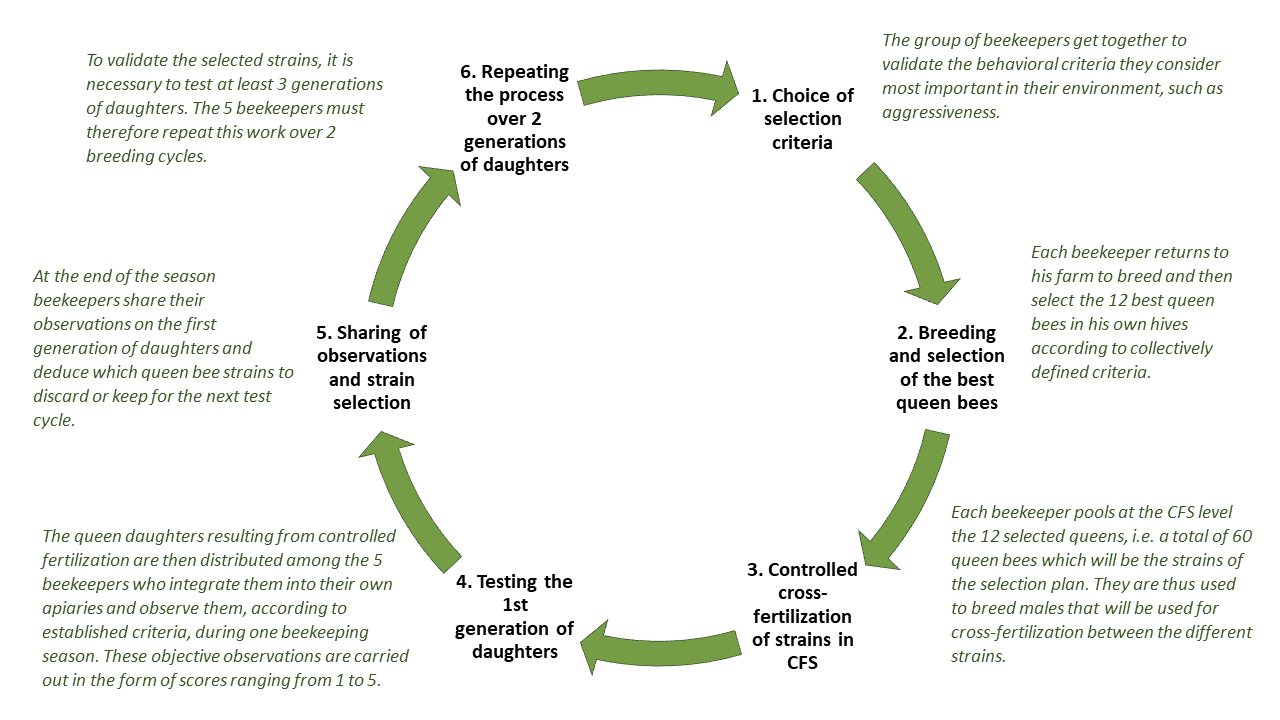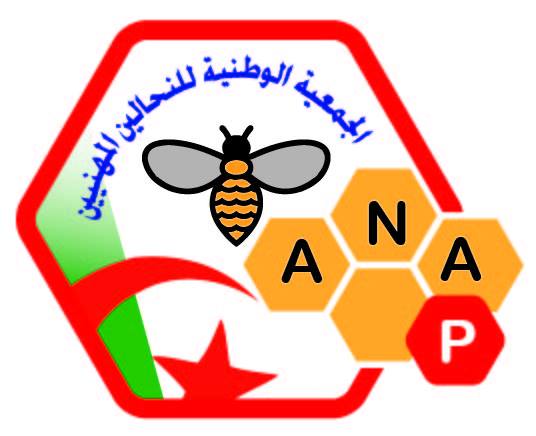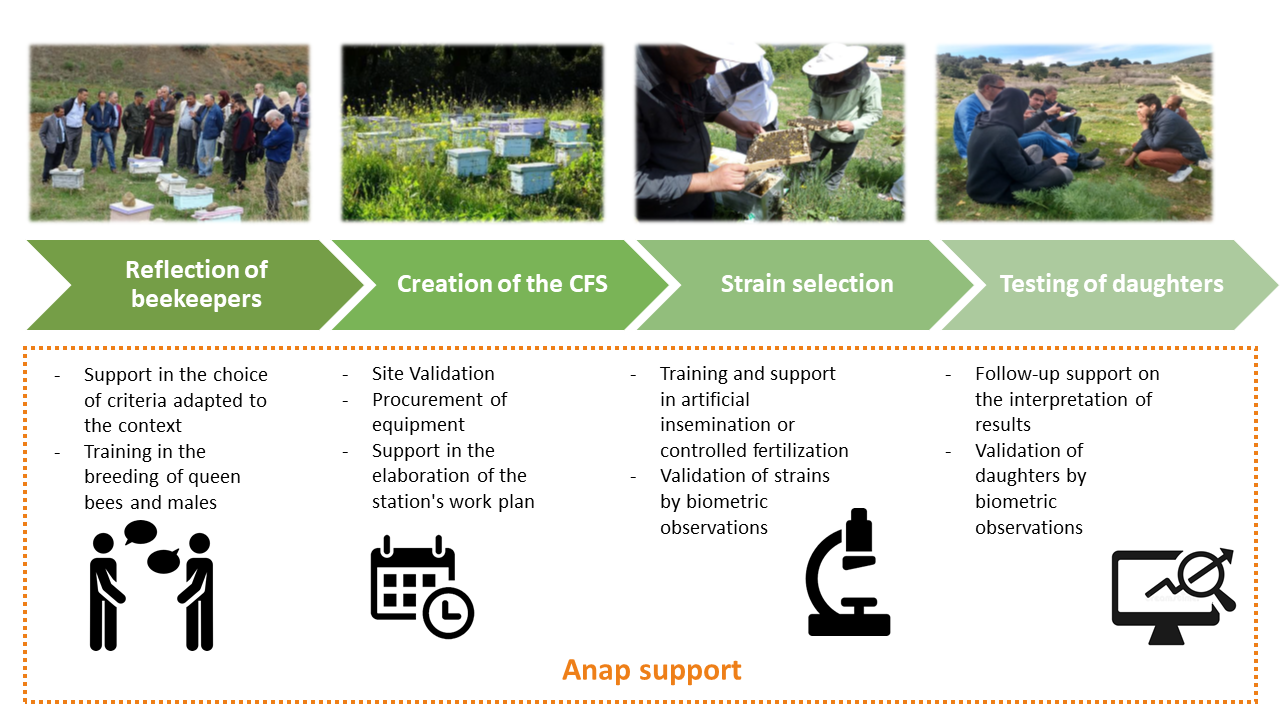In Algeria, Fert supports the National Association of Professional Beekeepers – Anap, a young organization created in 2015 on the initiative of a small group of professional beekeepers, mostly from the wilaya of Blida and willing to organize themselves to meet the challenges of the sector and especially that of genetic selection.
Since 2018, Anap, by mobilizing experienced member beekeepers and its technician on specific tasks, has been gradually structuring a network of controlled fertilization stations (CFS), whose role is to preserve the two local sub-species adapted to the context. At the end of 2019, Anap will support a total of six CFSs in the preparation and implementation of their selection plan.
This support is based on:
- Practical training prior to the creation of the CFS to enable beekeepers to master breeding techniques,
- A validation of the critical steps throughout the implementation of the selection plan by CFS beekeepers,
- A contribution in small equipment, necessary for CFS operations,
- A follow-up of the results obtained.
In addition to the results obtained on genetics, the 6 CFS have aroused strong interest among beekeepers at the local level. The stations are indeed a space for exchange between beekeepers on improving breeding techniques, but also on specific knowledge about the means of prevention and treatment of varroa, a parasite that affects bees very strongly in Algeria and can totally destroy the population of an apiary.
The CFSs are thus gradually becoming the Anap’s anchorage point in the field, making it possible to develop other technical training services and gradually organise the profession from the grassroot level. Four new groups of beekeepers are currently being supported by Anap on breeding techniques and site selection to create new stations.
The reflections are still to be carried out, because once the groups have validated their selection plan, it will be necessary to think about the dissemination process of the selected queen bees. The stations could offer sustainable services as direct sale of queen bees from better-performing local species (or fertilization services) to members and other beekeepers.
Why selection?
The two subspecies of bees, known as the Tellian black bee and the Saharan yellow bee, have been threatened for several years by the importation of foreign bees into the country by some beekeepers. These foreign bees, although more productive in their region and cheap, are not adapted to the Algerian context. Their uncontrolled hybridization with local subspecies could lead to their disappearance and threaten the whole beekeeping profession.
In order to preserve his livestock, a beekeeper can set up a selection plan at the level of his apiary. However, this work carried out individually quickly faces the problem of inbreeding in the hives. For a selection plan to work, it is necessary to implement it on several apiaries, thus ensuring a controlled genetic diversity. The preservation of local subspecies is therefore a collective issue.
How does a CFS work?
CFS is a small collective bee farm, located in a site sufficiently isolated from other apiaries (generally in mountainous areas or oases) to avoid genetic pollution, in which five or more beekeepers implement a selection plan together, following the process below:

What are the technical results?
In 2018, three stations were created in the towns of Médéa, Sidi-Bel Abbés and Yakouren. The creation of these stations was facilitated by a significant amount of work at the local level by station managers, experienced beekeepers and members of Anap, who thanks to their good relations with the local authorities were able to obtain sites to host the stations and form a group of motivated beekeepers who are technically capable of selecting strains close to the Tellian bee and the desired behavioural criteria.
After a first season, biometric analyses carried out by the Anap technician on the daughters showed that in two stations the morphological characteristics corresponded well to the subspecies of the Tellian bee. The implementation of the selection plan will need to be continued over two more generations to validate the strains and use them to produce more Tellian queen bees. At the third station analyses revealed a significant distance between the daughter bees and the Tellian characteristics. Genetic pollution from hives in the vicinity of the site is thought to be responsible for this distance. The work will have to be repeated from the beginning at this station. Between 2019 and early 2020, three new stations were created, one in Ghardaïa for the Saharan yellow subspecies and two in El Tarf and Souk Akhras for the tellian subspecies.





